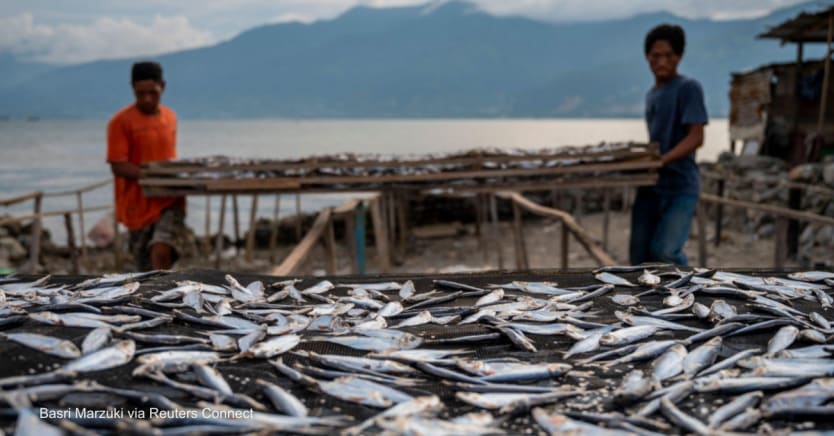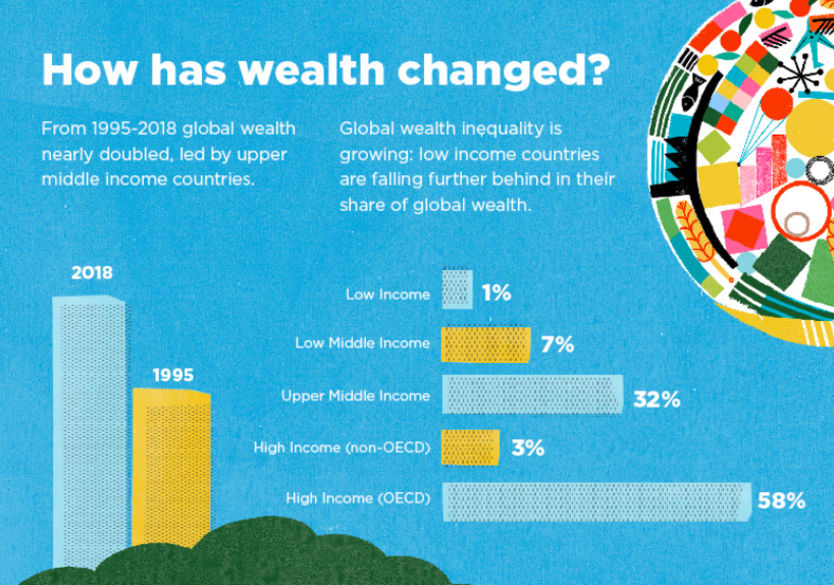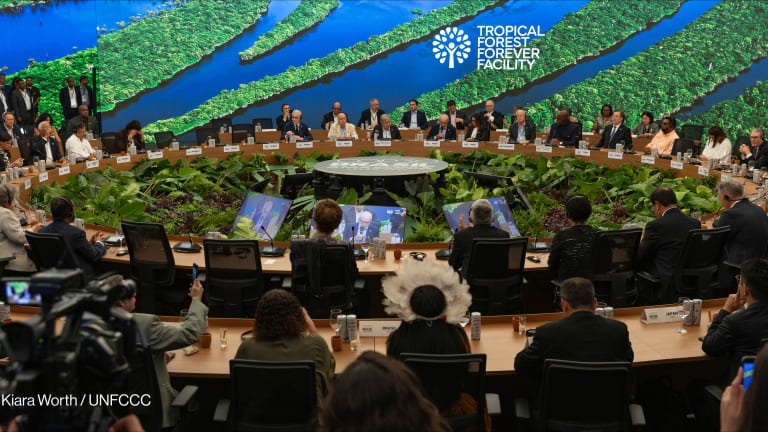
Global wealth is growing, particularly due to middle-income countries catching up with the most advanced economies. But many low-income nations remain stuck, collectively holding less than 1% of the pie despite accounting for 8% of the planet’s population, according to new data from the World Bank.
In a report published Wednesday, the bank also warned that many nations are on an “unsustainable development path” and focusing too heavily on short-term gains.
“In countries where today’s GDP [gross domestic product] is achieved by consuming or degrading assets over time, for example by overfishing or soil degradation, total wealth is declining. This can happen even as GDP rises, but it undermines future prosperity,” according to the document, titled “The Changing Wealth of Nations 2021.”
The bank’s calculations to measure wealth go beyond traditional capital assets by including natural and human assets as well — ranging from social capital, such as institutions, to biodiversity.
The bank said that across low- and middle-income countries, forest wealth is shrinking rapidly, by about 8% on a per capita basis from 1995 to 2018. The value of fisheries globally fell 83% over that period. For low-income nations, renewable natural capital accounts for 23% of their wealth and is crucial for growth over the longer term, the report said.

The report recommended that governments focus on long-term goals and “correct market failures” on investments. It said governments should consider citizens’ per capita lifetime earnings, as well as factors such as pollution, which cause millions of premature deaths.
“Environmentally harmful produced capital and fossil fuels are often overrewarded by markets, while essential human and renewable natural assets are often undervalued and underpriced,” the report said.
The document makes a distinction between economic output, or GDP, and wealth, which is measured in underlying national assets, with the latter holding the potential for future growth and prosperity.
The report said that intangibles, from education to forests, do not appear on balance sheets and therefore can be incorrectly viewed by policymakers as worthless.
Search for articles
Most Read
- 1
- 2
- 3
- 4
- 5








